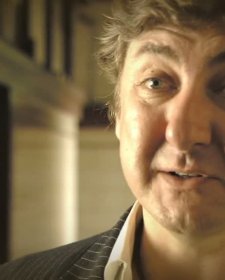- About us
- Support the Gallery
- Venue hire
- Publications
- Research library
- Organisation chart
- Employment
- Contact us
- Make a booking
- Onsite programs
- Online programs
- School visit information
- Learning resources
- Little Darlings
- Professional learning
Robin Rhodes Millhouse, QC (1929-2017) was born in Adelaide. He completed his law degree at the University of Adelaide and worked as a barrister before being elected to the South Australian Legislative Assembly in 1955. He was a member of the State Parliament for more than 25 years, serving as Attorney-General and Minister for Aboriginal Affairs, Social Welfare and Labour and Industry from 1968 to 1970. Among the numerous social reforms in which Millhouse was involved were the legalisation of abortion on health grounds and the introduction of the compulsory wearing of seatbelts.
After his party, the Liberal and Country League, was defeated in the 1973 state election, Millhouse resigned and began working to form a new political party, which eventually merged with other like-minded groups to form the Australian Democrats. In the 1977 state election, Millhouse became the first Australian Democrat member of any Australian parliament. From this position, he continued to pursue a socially progressive agenda. Millhouse was appointed Queens Council in 1977. He resigned from parliament in 1982 on his appointment to the bench of the Supreme Court of South Australia. Millhouse’s father, Vivian Rhodes Millhouse, had also been a Supreme Court judge.
Millhouse served as a judge for the next 17 years, until reaching the mandatory South Australian judicial retirement age of 70. He went on to serve as the Chief Justice of the highest courts in the pacific nations of Kiribati and Nauru and as a locum judge on Tuvalu. A man of integrity and energy, colleagues remembered Millhouse on his death, aged 87, as a political maverick, a deeply religious man, and a committed athlete throughout his long life. He was also a keen nudist and a champion for the creation of Australia’s first declared nudist beach, Maslin’s Beach near Adelaide.
Collection: National Portrait Gallery
Purchased 2019
© Robin Sellick



On one level The Companion talks about the most famous and frontline Australians, but on another it tells us about ourselves.



An interview with photographer Robin Sellick about his portrait of golfing champion Adam Scott.



Robin Sellick captured a rare moment of quietude from the late conservation star Steve Irwin.